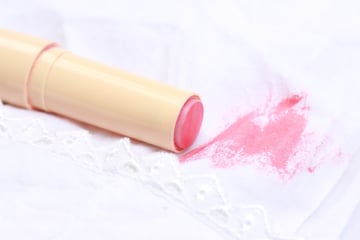How often should you change your sheets?
Don't you just love that heavenly feeling of sleeping in crisp, clean smelling bed linen? This guide will clue you in on just how often you should wash your sheets and when they need to be changed, so that you can keep rollicking in that fresh feeling of beauty sleep.

Imagine this daydream: You're enjoying a lovely mid-day nap, just chilling.
Rolling over, you catch a whiff of something funny. Maybe it's a slightly salty smell, or maybe a bit more musty.
You're feeling a bit confused, a bit concerned, so you jump onto your phone and search "Should I change my sheets?"
To answer your question, we'll dive into how often sheets should be changed, and the many different opinions surrounding it.
Here's a definitive guide to when you should be changing and cleaning your sheets, and why it's so important.
How often should you change your sheets?
Washing your sheets might seem like a rather boring and somewhat pointless exercise. Understandible so – we've all had something better to do at some point or another.
But cleaning your sheets is really important.
Generally, to protect both your health, the health of your loved ones, and a healthy sleeping pattern, you should wash and change your bed sheets at least once every one or two weeks.
How often should you change your blanket?
So ... what's the difference between the need to clean your blankets vs your sheets?
It might seem the same, but hear us out: If you're using sheets as well as blankets, your body generally doesn't come into direct contact with blankets as much as sheets. As a result, they need to be washed less frequently than your bedsheets.
In fact, it is best to only wash your blankets once or twice a month to keep that fluffy, soft feeling for longer. The same goes for duvet covers.
How often should you wash your pillowcase?
Seeing as you actually rest your head on the pillow, it's probably best to wash and change your pillowcase more often than blankets - or even sheets.
We often sleep with unwashed hair, we sweat, we even drool a little bit during our sleep. Because of this, our pillowcases get quite dirty, quite quickly.
Pillowcases need to be washed the most frequently of all bedding. We's recommend cleaning and changing pillowcases at least once a week, or even more.
Why should I clean and change my sheets?
Even the cleanest human can carry unseen germs, often without even knowing it.
In the case of bedding and bedsheets, cleaning and changing them is incredibly important because during sleep, your body loses water through the excretion of sweat and other fluids.
Slightly disgusting, no? Well, yes – and that's why you should wash your sheets.
Think about it: So much stuff we don't necessarily notice ends up in our bed. Hair, skin, and residue from beauty products like body creams and hair oils all end up in the fibers of your bedsheets.
All of these bodily fluids, dirt particles, products, and residues can make your bed a haven for pesky little buggers like bed bugs or mites, as well as allergy-triggering dust and pollen. Possible bites or constant sneezing and irritation seems like a damn good reason to wash those linens.
Ultimately, regularly cleaning and changing your sheets is important because it removes contaminants that can negatively affect your health, quality of sleep, and the chance for pest and bug infestations.
When should I change my bedsheets more often?
There are a couple of triggers that can lead to the need for your bedsheets to be cleaned and changed more often than usual. These can range from unusual events like spilling coffee or food in your sheets, to more serious ones, like a mild infestation of bugs.
In summer, especially, your bedsheets should be washed more regularly due to the higher amount of sweat that will inevitably accumulate within the textiles. This salty residue isn't particularly pleasant to sleep in, so you may want to start changing your sheets twice a week.
Also, make sure to keep in mind that changing your bedsheets is an effective preventative measure against various illnesses and parasites. Flus and colds in winter can be a particular problem, and virus particles can actually get into your sheets. To keep your stint at being sick relatively short, make sure to regularly wash your sheets.

Lice are also nasty little beasts. These parasites are especially common amongst children, due to how easily they spread in schools, but can also be a serious problem if you don't change your sheets regularly.
If you get an infestation of lice, you'll need to wash all of your linen, not just your sheets, at a hot temperature of at least 140° Fahrenheit, and with quite powerful cleaning products.
If you find yourself with a nasty pinworm infestation, you're also going to want to change all of your bed linen quickly and wash it between 140° and 200° Fahrenheit. The difference here, though, is that you should also keep this set of linen in isolation for at least three weeks.
This might seem a little odd, but although the parasites themselves cannot survive long without humans, their eggs can remain on materials for a few weeks. Make sure to also see a doctor, as a pinworm infestation can be quite severe.
We also recommend completing a daily linen change in the case of a scabies infestation. These mites are easily transmissible and result in a high likelihood that you may pass them on to other people. They also often get caught in your sheets, so you'll really want to give them a good wash every day during an infection.
While some special circumstances mean you'll need to complete a change of sheets more regularly, you generally don't need to be doing it every day. If you stick to washing bedsheets and pillowcases about once a week, and duvet covers and blankets once a month, you should be just fine – and sleeping in freshness.
Cover photo: 123RF / Dean Drobot




